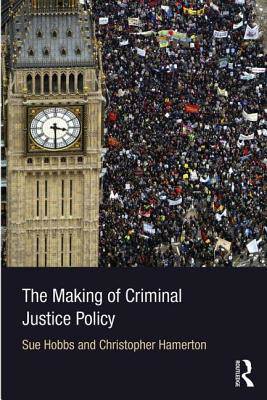
- Retrait gratuit dans votre magasin Club
- 7.000.000 titres dans notre catalogue
- Payer en toute sécurité
- Toujours un magasin près de chez vous
- Retrait gratuit dans votre magasin Club
- 7.000.0000 titres dans notre catalogue
- Payer en toute sécurité
- Toujours un magasin près de chez vous
Description
This new textbook will provide students of criminology with a better understanding of criminal justice policy and, in doing so, offers a framework for analysing the social, economic and political processes that shape its creation. The book adopts a policy-oriented approach to criminal justice, connecting the study of criminology to the wider study of British government, public administration and politics.
Throughout the book the focus is on key debates and competing perspectives on how policy decisions are made. Recognising that contemporary criminal justice policymakers operate in a highly politicised, public arena under the gaze of an ever-increasing variety of groups, organisations and individuals who have a stake in a particular policy issue, the book explores how and why these people seek to influence policymaking. It also recognises that criminal policy differs from other areas of public policy, as policy decisions affect the liberty and freedoms of citizens. Throughout, key ideas and debates are linked to wider sociology, criminology and social policy theory.
Key features include:
- a foreword by Tim Newburn, leading criminologist and author of Criminology (2nd Edition, 2013),
- a critical and informed analysis of the concepts, ideas and institutional practices that shape criminal justice policy making,
- an exploration of the relationship between criminal justice and wider social policy,
- a critical analysis of the debate about how and why behaviour becomes defined as requiring a criminal justice solution,
- a range of case studies, tasks, seminar questions and suggested further readings to keep the student engaged.
This text is perfect for students taking modules in criminology; criminal justice; and social and public policy, as well as those taking courses on criminal and administrative law.
Spécifications
Parties prenantes
- Auteur(s) :
- Editeur:
Contenu
- Nombre de pages :
- 198
- Langue:
- Anglais
Caractéristiques
- EAN:
- 9780415676960
- Date de parution :
- 15-04-14
- Format:
- Livre broché
- Format numérique:
- Trade paperback (VS)
- Dimensions :
- 156 mm x 234 mm
- Poids :
- 285 g

Les avis
Nous publions uniquement les avis qui respectent les conditions requises. Consultez nos conditions pour les avis.






